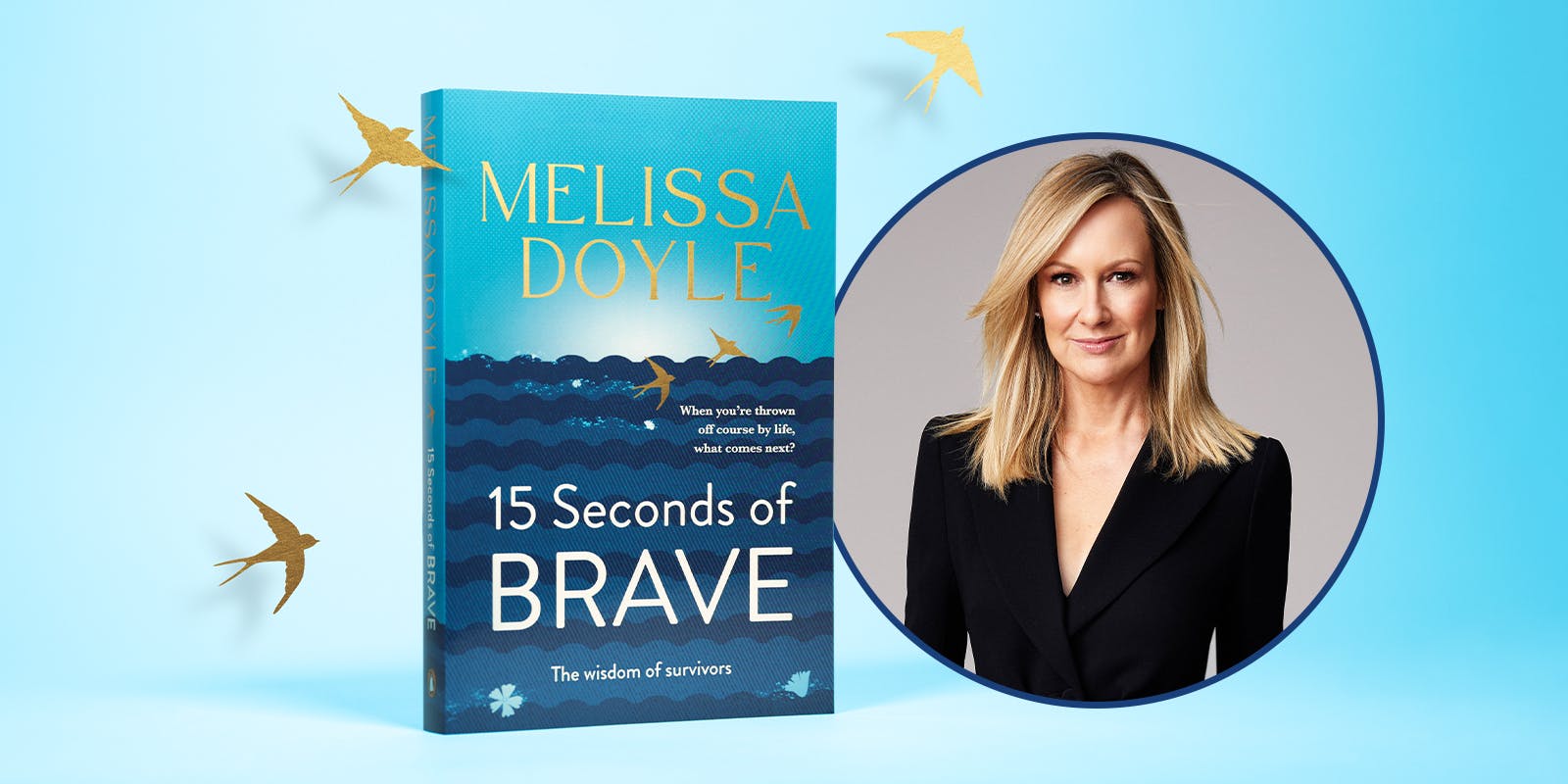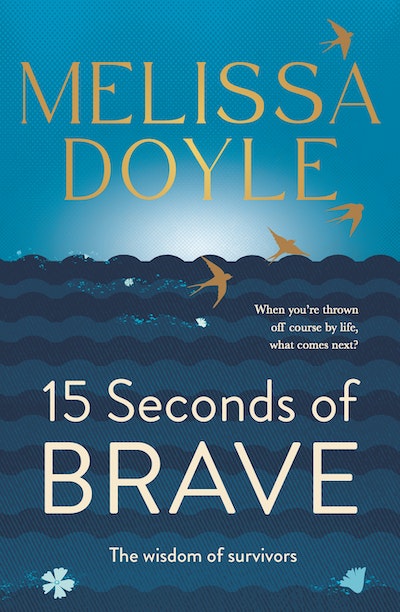We talked with Melissa Doyle about her new book, 15 Seconds of Brave. She told us about her writing set-up, who she’d love to read the book, and the difference between telling a story on page versus on-screen.
While writing, did you notice any major differences between telling a story on the page versus on-screen?
People are a lot more relaxed without a camera present.
I also think my subjects were more comfortable delving into some deeply traumatic and personal areas knowing it was just the two of us talking. I dare say they would have felt uncomfortable if viewers were watching.
It also challenged me to be more descriptive of time, place and nuance. I couldn’t rely on facial expressions or those long moments of reflective silence.
Did you know exactly which stories you wanted to tell when you set out to write 15 Seconds of Brave, or did more ideas come to you as you wrote?
I had most of the ideas already. I’d been waiting for the right time to put them all on paper, but more importantly, the right time for some of my subjects to share their stories.
Some interviews were done intermittently over 18 months, depending on how the interviewees felt at the time. Their healing processes ebbed and flowed, some days it was simply all too much as emotions were delicate and we needed to take a break.
What was your writing process like? Did you have a routine? A special writing set-up? A specific location you liked to write at?
I have a desk under a window in a room off the kitchen. The coffee machine is close by and my dog’s bed is at my feet. I did a lot of writing during the lockdown. I am good in the morning, so I used to get up really early and get a few hours done before my family rose for the day.
The book is full of important life lessons; what was the biggest lesson you learned from writing 15 Seconds of Brave?
We all have challenges and they can be very different from someone else’s – so you need to find what it is that helps YOU survive. It might be religion, a support group, a professional or a friend, but it’s what works for you.
I also took so much from Grace’s words, 'I choose to be happy'. Each subject found, in their own way, strength by controlling how they felt, even when they had no control over the situation. I found that incredibly powerful.
Imagine you could have one person – a major role model, historical figure, inspiration – read the book. Who would it be and why?
I’d rather know that it's read by someone who really needs to hear some of these stories, who can gain strength from any of my subject’s journeys – someone who is struggling to find their own strength right now.
While writing, were you thinking about an audience or were you simply writing for yourself?
I was constantly thinking about my reader and what they might take from each story. I’m a journalist – it’s my job to communicate, and I love nothing more than sharing people’s stories.
Above all, though, I was thinking about my interviewees. I hope I have done them all justice. They each have so much wisdom to share. I hope I was able to express even a fraction of that.
Like the sound of it? Read an extract.













